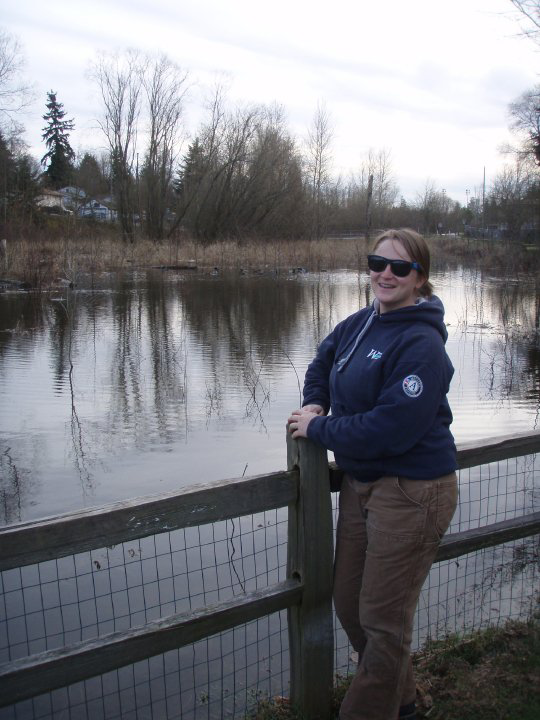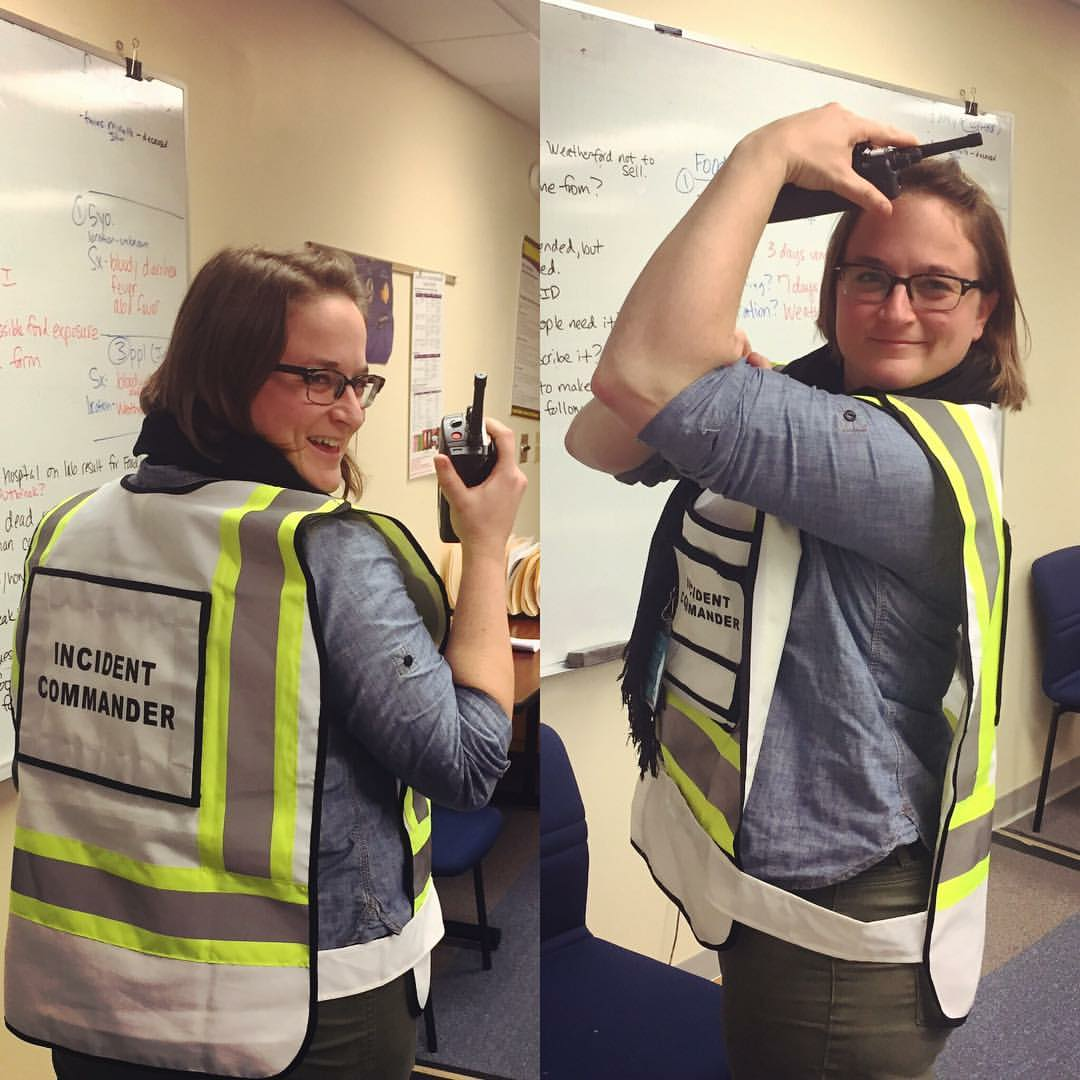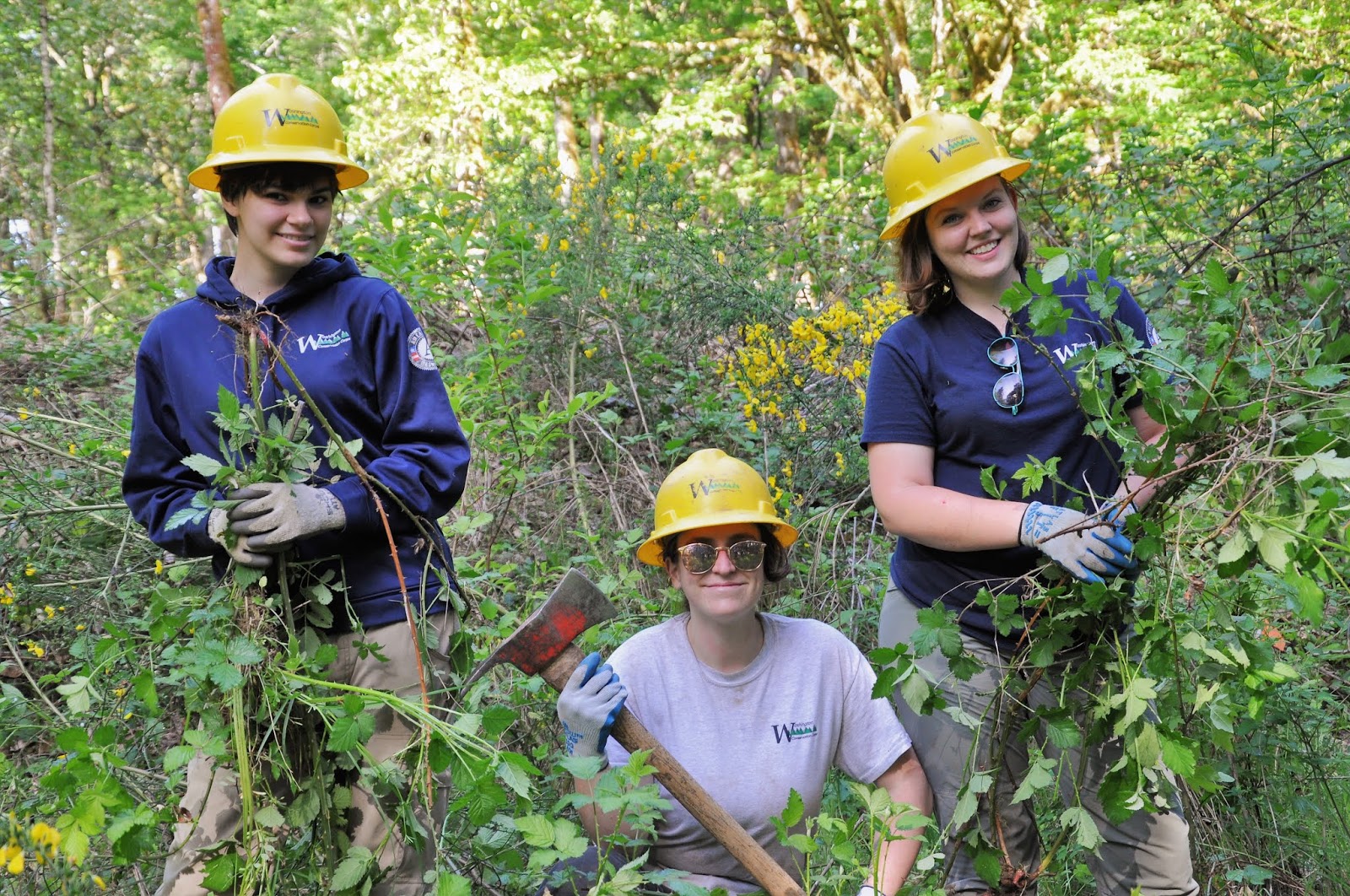A decade ago, Nina Rubenstein was swinging a pick-mattock on a Washington Conservation Corps restoration crew. Today she serves as the emergency manager for Providence St. Joseph Health’s Oregon region. It all started with saying “yes” to some exciting — and challenging — opportunities as an AmeriCorps member.
Nina grew up in the world of land conservation. Her father’s experience in the legal arena exposed her to the environmental field, and Nina joined our WCC in 2009 to gain hands-on experience. But she was further enticed by a new angle: the prospect of disaster response deployments.
A formative first — and second — deployment
She removed debris from land where homes had once stood, and led weekly safety meetings. Survivors who owned a crawfish business hosted a full crawfish boil for members at the camp where members were staying during deployment.
“I remember it being my first immersive experience in the South,” she said. Its lasting impact made her want to continue serving on disaster responses. “I decided I would not only do a second year in the WCC, but I would deploy again at any opportunity,” she said.
That opportunity arose when 360 confirmed tornadoes tore across the Southern, Midwestern, and Northeastern regions of the United States in just three days. Nina and WCC’s disaster response teams arrived in northern Alabama a month later, charged with managing a volunteer resource center.
The disaster response teams also needed a logistics coordinator. Already serving as an assistant supervisor and ready for more responsibility, Nina jumped at the chance. Leading the administrative and logistical side of the deployment meant making many phone calls to match field projects with the skill level of the volunteers.
“It was really gratifying to spend time on the phone with people who felt like they had been forgotten,” she said.
Disaster response in a new setting: a classroom
The second deployment to Alabama helped solidify her calling to disaster response. “I saw that the logistical side of things could be a much broader path, and I realized ‘I want to know what path that is,’” she said.
After returning from Alabama, Nina researched options for finishing her undergraduate degree and landed on the Homeland Security Studies program at Tulane University in New Orleans. A few months later, she finished her second service term in the WCC and headed off to Tulane University.
Nina poses at Department of Homeland Security's Center for Domestic Preparedness in Anniston, Ala. She has visited the training facility for healthcare emergency management twice for different courses. Photo contributed by Nina Rubenstein.
After a deep dive into emergency management curriculum — including an in-depth study of the effects of Hurricane Katrina — Nina moved back to the West Coast and secured an emergency management coordinator position with PeaceHealth, a hospital system based in Vancouver, Wash.
Expanding her skills, with a nod to AmeriCorps service
Nina’s team at Providence St. Joseph Health is in charge of emergency management plans for six hospitals and more than 100 clinics and acute care centers. Typical projects include developing full-scale exercises to demonstrate preparedness, including staff training, and building a disaster equipment cache for the region she serves.Looking back, the days of waking up at 6 a.m. to meet her WCC restoration crew in Renton provided pivotal experience along her vocational journey.
“In school, and more so now, I found that I knew what I was talking about because I had done it. Applying for jobs and school, I could say I had two years’ work experience in this field, in a supervisory role,” she said. “That was absolutely a leg up in the job market.”
Fast forward to 2019: WCC deploys to Iowa
Apply to WCC today
Do you want to gain hands-on environmental experience, build your résumé, and make a difference in your community? WCC is currently recruiting for the 2019-2020 AmeriCorps service year! Learn more and apply online: www.ecology.wa.gov/wcc.




